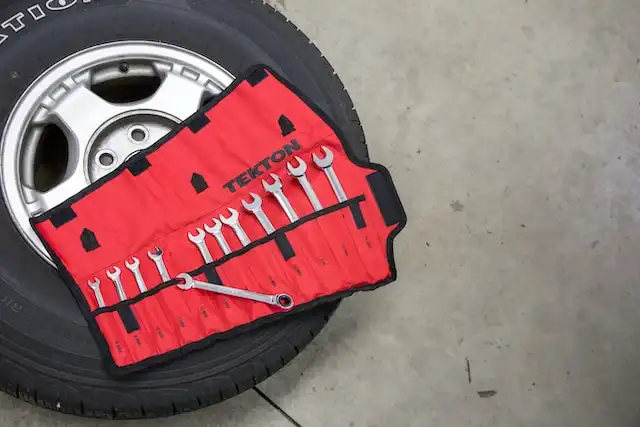Last updated on January 11th, 2024 at 11:14 am

A tire warranty is something that every car driver has come across in their lifetime. Even though nowadays, due to improved technology, manufacturers predict the right tire mileage, sometimes, the tire doesn’t even come close to the given warranty. In this case, a tire warranty is a good backup from losing all of your money and an ensuring factor that motivates buyers to buy new tires.
Tires without a warranty are always a threat for drivers, as this tire might wear off after a few thousand miles, and this is the reason why manufacturers provide warranties with their tires so buyers don’t hesitate before buying their tires. With time, the usage of advanced technology has been improving the tread life, this is why now tires come with a high tread wear warranty compared to the tires launched a decade ago.
Although most of you hear only tread warranties, because it is the common one, manufacturers also provide different types of tire warranties. We will explain each warranty type which will help you make the most out of your tire by properly claiming your warranties from manufacturers.
Table of Contents
Tread Life Tire Warranty
A treadwear warranty is something when you get on the treadwear. It is given on tread mileage like a (50K) fifty thousand miles treadwear warranty. If your tires wear off earlier than the treadwear warranty you will get a reimbursement on the remaining tread life the tire has to cover. For example, if the tire has a 20K miles treadwear warranty, runs for 17K miles, and wears off below 2/32 tread depth, you will get a discount on new tires by calculating the cost of 3K miles of new tires that you choose.
Uniformity Tire Warranty
This tire warranty is very rarely claimed because the tire manufacturers have made a good system that makes them avoid any mistakes. This uniformity warranty can be claimed if the car’s performance is disturbed due to the tire tread and compound. For example, if the car is vibrating due to the broken tread belt, irregular wear on one tire, or rubber pop-up, only then can this warranty be claimed. You will get new tires if you claim this warranty in the given time and conditions matched.
Workmanship Tire Warranty
This type of warranty can be claimed when the tire is defective. Sometimes tires are not properly in shape, the tread design does not match, or the tire is defective. In this case, this type of warranty works. Mostly, all tire manufacturers provide tires with this type of warranty; however, there is a very short period to claim these warranties. That is why always check the tire and scrutinize them while driving if they are causing any problems, and if you find out, then claim the warranty as soon as possible.
Road Hazard Tire Warranty
The road hazard warranty does not come with every tire, especially off-road tires. It includes any damage that comes across the road, like pothole damage or punctures due to sharp objects or nails, this warranty can be claimed. In this warranty, a tire retailer or manufacturer will repair your tires, and if the damage is severe, you can get new tires, which will have the same amount of tread life left as yours.
Test Drive Tire Warranty
It usually comes with new tires for a very short period, usually 30 or 60 days. It is also called a satisfaction warranty. If you bought new tires and you won’t get satisfactory results, you can claim this warranty and exchange these tires with other tires, or sometimes manufacturers give a money-back guarantee as well.
Warranty Plan With Different Tires
All-season tire vs summer terrain tire warranty
Different type of tires comes with different ranges of tread warranty. The all-season tires, compared to summer tires, come with an extensive treadwear warranty. Usually, all-season tires have an 80-100k miles treadwear warranty, and summer tires have a 25-50k miles treadwear warranty. However, the performance of summer tires is far better. That is why drivers looking for durable tires go with all-season tires.
All-terrain tire vs. Snow terrain tire warranty
Similarly, in this case, all-terrain tires have a higher treadwear warranty than winter or snow terrain tires. The reason for this is that the winter season is harsh and requires tires that can handle extreme conditions, and extreme conditions require deep tread depth, which increases the chances of irregular wear. As all-terrain tires are not for harsh winter terrains, they have a higher treadwear warranty; however, in extreme winter conditions, these tires fail compared to winter tires.
Avoid Tire Warranty Void
Not doing periodic tire rotation, driving with deflated tires, accidental slashes, and unaligned or unbalanced tires can cause a voidance of the tire warranty. To avoid this, you should properly rotate tires as the tire manufacturer recommended, always check the air pressure of tires, and make sure the tire is aligned properly when you install them.
Conclusion
A tire warranty is extremely helpful if you get a defective tire or the tire tires wear off earlier. With this information, you can claim a warranty if something unusual happens with your tires, and also you can choose the tire that provides a better warranty plan when you buy new tires. Also, you can avoid the thing that can void the tire warranty claim, which can cost you a lot of money in the future.
